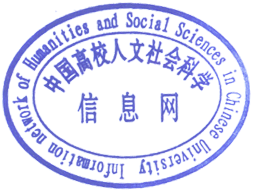关 键 词 :老子;《道德经》;“水”哲学学科分类:文学--中国古代文学
《道德经》作为古代中国哲学的经典之一,以其深邃的思想和独特的表达方式吸引了众多学者的关注。本论文以隐喻为视角,深入探讨了老子《道德经》中水的哲学内涵,主要聚焦于“上善若水”、“以柔克刚”和“无为而治”等核心理念。这一水哲学的精髓不仅在古代哲学中具有独特价值,更在当代社会、领导学以及个体修养中提供了启示,为人们提供了一种更加宽容、智慧的生活方式。
Tao Te Ching, as one of the classics of ancient China philosophy, has attracted the attention of many scholars with its profound thoughts and unique expression. From the perspective of metaphor, this paper deeply discusses the philosophical connotation of water in Laozi's Tao Te Ching, focusing on the core concepts such as "being good as water", "being soft" and "doing nothing". This essence of water philosophy not only has unique value in ancient philosophy, but also provides enlightenment in contemporary society, leadership and individual cultivation, providing people with a more tolerant and intelligent lifestyle.

